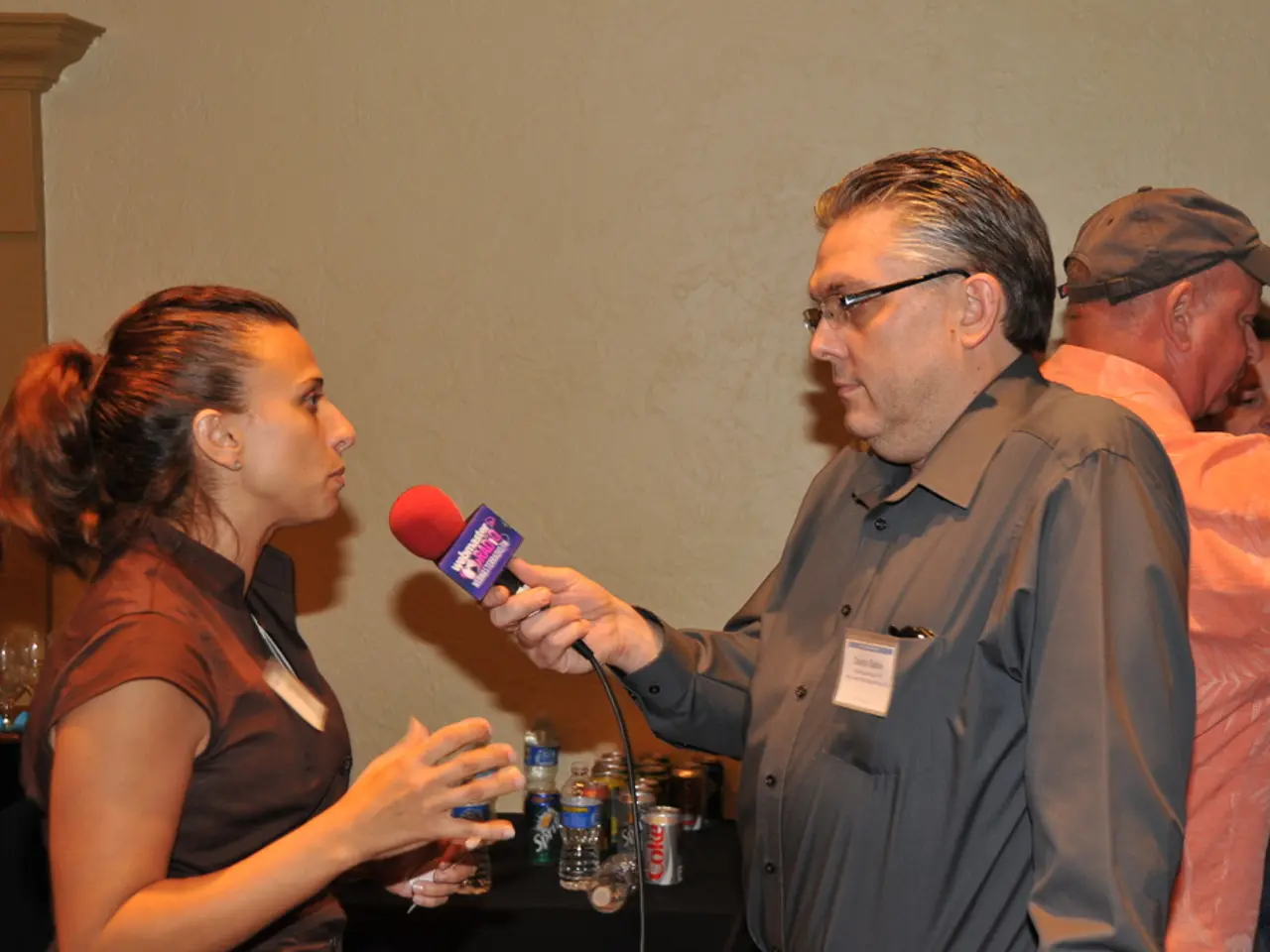Instructions for Breaking Down Interview Discussions
In the realm of qualitative research, crafting insightful and productive interviews is crucial. Here's a guide on how to prepare for such interviews effectively.
Preparation is Key
To begin, define clear objectives for your research. This sets the stage for designing open-ended and non-leading questions that align with your goals. Purposively select participants who can provide valuable insights based on your research focus.
Designing the Interview Guide
Creating an Interview Guide is essential for structuring in-depth conversations that capture nuanced experiences and thoughts of participants. Design open-ended questions for each concept, phrased in everyday language and avoiding jargon. A flexible, participant-centered approach is recommended, balancing broad thematic focus and open questions.
Avoiding Common Pitfalls
Avoid asking yes/no or hypothetical questions that limit depth. Over-preparing to the point of robotic delivery can also hinder the interview. Ensure you use prompts and probes, such as "Can you provide an example?" or "What were you thinking at that moment?" to deepen responses.
Ethical Considerations
Neglecting ethical considerations, such as informed consent or the emotional impact of certain topics, can compromise the effectiveness and ethical integrity of the interview. Gain clear, voluntary informed consent and ensure participant privacy.
Logistical Considerations
Ignoring logistical issues, such as technical difficulties or background noise, can disrupt the flow of an interview and compromise its effectiveness. Organize your interviews considering format (in-person, phone, video), and verify technical setup in advance to avoid disruptions.
Pilot and Revise
Pilot and revise the interview guide to review the wording of questions, be mindful of leading questions, and avoid social desirability bias and other errors. Overloading the interview guide with too many questions can overwhelm participants and limit the depth of their responses.
During the Interview
Acknowledge silence as a means of reflection and use brief pauses to give participants space to think and elaborate on their answers. Minimize guiding the conversation by avoiding leading or suggestive questions.
Building Relationships
Disregarding relationship building can create a formal or uncomfortable environment where participants may hesitate to share personal insights. Build rapport at the beginning and closing with appreciation and information about next steps.
Data Analysis
Begin preliminary qualitative data analysis early (even after the first interview) to iteratively improve data collection and analytic depth.
In sum, careful design, ethical rigor, flexible yet purposeful questioning, and reflective analysis are key to high-quality qualitative interview research. By following these guidelines, you can ensure your interviews are productive, ethical, and yield valuable insights.
[1]: Source 1 [2]: Source 2 [3]: Source 3 [4]: Source 5
In the arena of education-and-self-development, conducting insightful interviews for personal-growth research is vital. Effective preparation includes defining clear objectives, selecting appropriate participants, designing open-ended questions, and avoiding common pitfalls like yes/no or hypothetical questions. Regularly piloting and revising the interview guide is also crucial to maintain question clarity and avert biased responses. Throughout the interview process, establishing rapport and employing a flexible, participant-centered approach are essential for capturing nuanced experiences and honest insights.




